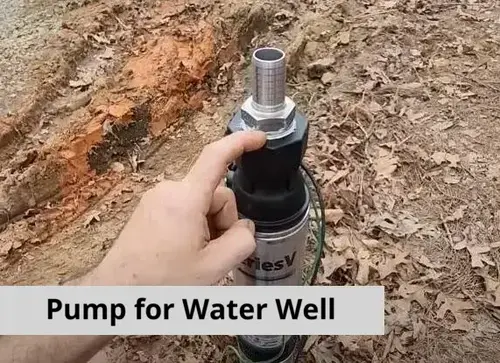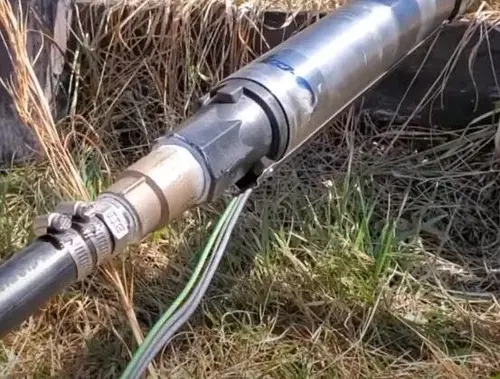Selecting the appropriate pump for your water well is critical to ensure that your property has a reliable and efficient source of water. However, with so many choices in the market, it can be overwhelming and daunting to know which pump is the right one for you.
We will go over some crucial points to consider when choosing a pump for water wells. We will discuss the different types of pumps, their features and benefits, and what factors you need to consider before making a purchase.
Whether you’re looking to replace an existing pump or installing one for the first time, this guide will help you make an informed decision so you can get the best performance and efficiency from your well.
Types of well pumps available
When it comes to choosing a pump for your water well, there are a variety of types to consider. The most popular options are submersible pumps and jet pumps, but there are also hand pumps and shallow well pumps to choose from.
Submersible pumps are a popular choice for wells deeper than 110 feet as they are submerged in the water, allowing for efficient and reliable pumping. They are available in a range of horsepower options, and their cylinder shape makes them easy to install.
Jet pumps, on the other hand, are better suited for shallow wells and are ideal for households with lower water needs. These pumps are powerful and transport water quickly but are not suitable for depths exceeding 25 feet.
For those in need of a more traditional option, hand pumps are a great choice for low-volume wells. They require manual operation but offer a reliable water source in case of emergencies.
When selecting a well pump, it’s important to consider the GPM, or gallons per minute, required for your household’s water usage. Counting fixtures and appliances will help determine the necessary pump size, and knowing average household water usage and flow rates can aid in selecting the most efficient option.
Top Water Pump Brands for 2024
As we head into 2024, there are a lot of well pump brands vying for your attention. With so many options available, it can be difficult to determine which brands are worth investing in. That’s why we’ve put together a list of the best water pump for wells brands in the USA for 2024.
- Red Lion
When it comes to well pumps, Red Lion is a name that you can trust. Their 1-HP 12-GPM Submersible Well Pump is one of the best-selling well pumps on the market, and for good reason. It’s durable, reliable, and perfect for supplying water to rural areas. - Hallmark Industries
Another top pick for the best submersible well pump is the Hallmark Industries Deep Well Submersible Pump. This pump is made from high-quality stainless steel and is built to last. It’s the perfect choice for those who need a reliable pump that can withstand harsh conditions. - Lowara
The Aquastrong 1.2HP Portable Shallow Well Pump Garden Pump from Lowara is another great option if you’re in the market for a new well pump. It’s a versatile pump that can be used for everything from draining irrigation to lawn maintenance. - Goulds
Goulds is a brand that has been around for over 150 years, and they are known for their commitment to quality and innovation. The Goulds j10S Shallow Well Pump is our top overall pick because of its quietness and efficiency. - Berkeley
Berkeley is another brand that has been trusted by consumers for years. Their well pumps are known for their reliability and high performance. The Berkeley B2TPMS Centrifugal Water Pump is a great option if you’re looking for a pump that can handle heavy-duty applications.
Shallow vs deep well pumps
When it comes to choosing a pump for your water well, one major factor to consider is the depth of your well. Shallow well pumps are best suited for wells less than 25 feet deep, while deep well pumps are designed for depths greater than 25 feet.
Shallow well pumps typically use a centrifugal jet system to suction water up to the surface. They are commonly accompanied by a tank or booster to increase water pressure, which provides a constant and reliable water supply to your home. These pumps are budget-friendly and easy to install, making them a popular choice for many homeowners.
Conversely, deep well pumps are submersible pumps that draw water up from the depths of the well. They are specifically designed for deep wells and can pump water from depths of up to several hundred feet. These pumps offer greater water pressure and a higher flow rate, making them well-suited for larger households or those with high water demands.
When choosing between shallow and deep well pumps, it’s important to consider the depth of your well and your household’s water needs. While shallow well pumps are more affordable and easy to maintain, they may not provide adequate water pressure or flow rate for larger households or properties with high water demands.
In contrast, while deep well pumps may be more expensive and require professional installation, they offer greater water pressure and a higher flow rate, ensuring uninterrupted water supply even during peak demand periods.
Choosing between deep-well jet and submersible pumps
When it comes to choosing a well pump, homeowners need to make a decision between deep-well jet and submersible pumps. Both pumps have their own set of advantages and disadvantages that should be carefully considered.
Deep-well jet pumps are generally used for wells that are more than 25 feet deep. They work by creating a vacuum that pulls water from deeper depths. However, deep-well jet pumps require an ejector to operate effectively. This component can be challenging to install and maintain, so it may not be the best option for homeowners who are not comfortable with DIY projects.
On the other hand, submersible pumps are placed in the well and operate from within the water source. They are typically used for wells that are more than 110 feet deep. Submersible pumps are known for their reliability and quiet operation, making them a popular choice for homeowners.
When choosing between deep-well jet and submersible pumps, it’s important to consider the depth of your well, as well as your own comfort level with installation and maintenance. Additionally, homeowners should calculate the gallons per minute required for their household water needs and take the number of fixtures into account when selecting the right pump size.
Determining gallons per minute required for well pump
When it comes to choosing the right well pump for your property, one of the most important factors to consider is the gallons per minute (GPM) rate. Thankfully, determining this crucial metric is a straightforward process that anyone can do.
As outlined in previous sections, there are different types of well pumps available, depending on the depth of your well and your water usage needs. Once you know which pump type is right for you, the next step is to figure out how many gallons per minute you require.
One common method to determine GPM is to measure the amount of water you draw down from the well and divide it by the number of seconds required for the pump to recover. You can then multiply the result by 60 to get your GPM rate.
For example, if you pulled out 10 gallons of water in 30 seconds, your GPM rate would be 20.
Knowing your GPM rate is critical because it will dictate the size of pump you need to properly supply your household’s water needs. It’s recommended to calculate at least one gallon per minute for every appliance in your home to find the average GPM needed.
If you have a small home with fewer appliances, you may only need a shallow well jet pump that can deliver up to 25 GPM. Larger households, on the other hand, may require a deep-well jet pump or submersible pump that can deliver over 100 GPM to meet their peak water demands.
By taking the time to calculate your GPM rate, you can ensure that you choose the right pump size to avoid overloading your well pump and guarantee a steady supply of water for your home.
Counting fixtures to select the right pump size
When choosing the right size pump for your well, it is important to consider the gallons per minute of water required during peak periods. An easy way to determine this is by counting the number of fixtures in your home, including all water-using appliances in your kitchen, bathroom, and laundry room.
By selecting a pump that corresponds to the number of fixtures in your home, you can ensure that the pump can deliver the necessary amount of water. This is important because a pump that is too small may not be able to keep up with demand, while a pump that is too large can be wasteful and expensive.
In addition to considering fixture count, it is also important to think about average household water usage and flow rates. This can give you a better idea of the amount of water your pump will need to deliver on a regular basis.
When it comes to pump types, there are several options available, including shallow and deep well jet pumps and submersible pumps. The size and depth of your well will play a role in determining which type of pump is right for your needs.
Average household water usage and flow rates
When choosing a pump for a water well, it’s important to consider the average household water usage and flow rates. This information will help homeowners determine the right pump size and flow rate for their needs.
According to industry experts, the average household requires 100 to 120 gallons of water per person per day. Additionally, the ideal flow rate for a well pump is in the range of 6 to 12 gallons per minute.
These numbers may vary depending on factors such as the number of fixtures in the home, the family size, and the type of appliances in use. When choosing a pump, it’s important to take these details into consideration to ensure adequate water supply for the household.
To determine the appropriate pump size, homeowners should count the number of fixtures in their home and choose a pump rated in gallons per minute (GPM) that meets the household’s daily water usage needs.
By keeping these factors in mind alongside considerations such as the depth of the well and the available pressure, homeowners can select a well pump that is optimized for their specific needs. Ultimately, a carefully chosen well pump can help ensure that households have reliable access to the water they need for everyday use.








